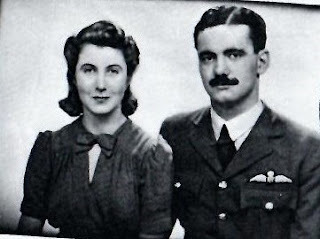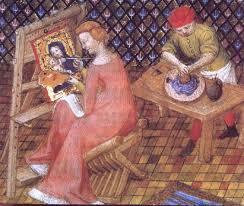Helena P. Schrader's Blog, page 22
February 4, 2022
FORGOTTON HEROS - A KIWI IN THE BATTLE OF BRITAIN: WILFRID CLOUSTON
As I have argued elsewhere, after AVM Park the AOC of Eleven Group, the greatest burden in the Battle of Britain fell not on the individual, young pilots but on the squadron and flight commanders who led them. One of those was Wilfrid “Wilf” Clouston. He deserves to be remembered -- and not just for his role in the Battle of Britain.
(Shown below with his wife Anne Hyde.)
Clouston was born in Devonport, Auckland 15 January 1916. He was educated in Wellington, NZ, and started his working life as clerk at Woolworths. However, like many young men of his generation, he wanted to fly. Clouston concluded that the best route to a flying career was to join the RAF, which at the time (1936) was offering a limited number of short service commissions to young men from the Dominions. The competition for these few posts was fierce, and applicants were required to already have an “A” pilot’s license. Clouston, therefore, conscientiously obtained a license in New Zealand. Given the thousands of applications, however, it speaks for Clouston’s character and reputation that he was accepted — albeit provisionally. First, he had to prove he could fly to the satisfaction of the RAF by reporting to England to pass a civil flying test.
Clouston opted to work his way to England aboard a steamer bound for Southampton. Once in the UK, he passed the civil flying exam and then started to learn to fly the RAF way. In June 1937, he was promoted to (Acting) Pilot Officer and posted to No 19 Squadron at Duxford. This was the first RAF squadron to be equipped with Spitfires, which they received at the end of 1938. As a result, the pilots on No 19 Squadron were particularly familiar with and adept at handling the Spitfire — something that contributed to a higher survival rate among the core pilots.
Clouston was promoted to (acting) Flight Lieutenant before the shooting war started and fought throughout the Battle of Britain in this rank. He was awarded the DFC for his contribution to defending the skies over Dunkirk. The official citation read:
“During recent operations over France and Belgium, Flight Lieutenant Clouston shot down four enemy aircraft. He led his flight with determination and vigour and has shown great personal gallantry.” (Source: The Times announcement of the DFC)
In his letters home, Clouston allowed no trace of doubt about the outcome — or hint of the exhaustion and the stress under which RAF fighter pilots fought — to surface. He maintained a rigid façade of indomitable keenness. For example, in a letter to his parents in August 1940 he wrote:
Every time we run into them now, the odds are at least ten to one against us, but such is the spirit and the feeling over here that we don’t mind. … You can’t imagine the limits that this spirit rises to. I have had to order pilots on my flight to go on leave when they were due for it but refused, as they might lose an opportunity to have another crack at the ‘schweinehund.’” (Source: “Wilf: Wilfrid Grenville Clouston” by Richard Clouston).
In November, Clouston was promoted to Squadron Leader and posted to command 258 Squadron, which was composed predominantly of New Zealanders, or “Kiwis” as they called themselves. He had survived the Battle of Britain and was in an excellent position to pass on his knowledge to others. Up to this point, his career paralleled that of the majority of pre-war RAF fighter pilots, the men who formed the backbone of Fighter Command, enabling it to keep fighting — and drinking and laughing — despite the odds.
However, in the summer of 1941 Clouston’s career took a dramatic turn that ultimately led him to a different destiny — one that deserves far more recognition than is commonly awarded. On August 22, Clouston was appointed to command a newly formed New Zealand Air Force Squadron 488. Clouston had to forgo a promotion to Wing Commander to take this assignment, and he was also required to go to Singapore to join up with the squadron. He arrived in mid-September 1941, ahead of the squadron coming up from New Zealand. His flight commanders joined him at the end of September but it was October before the bulk of the squadron arrived from New Zealand. To Clouston’s dismay the squadron was outfitted not with Spitfires or even Hurricanes but with Brewster Buffalos.
In very little time, Clouston made an operational squadron out of the raw material sent him, but on 23 January 1942, he was posted to Operational Headquarters in Singapore. The exact sequence of what happened next is no longer clear, but Clouston appears to have been instrumental in ensuring that the ground crew and staff of 488 Squadron were aboard the MV Empire Star one of the last ships to depart Singapore before it fell to the Japanese. He, along with other RAF headquarter staff, destroyed any unserviceable aircraft still in Singapore. On 15 February 1942, the day Singapore surrendered to the Japanese, Clouston with a number of other senior RAF officers attempted to evade capture aboard an air-sea rescue launch. The following day, this launch was bombed and sunk by the Japanese. Clouston was among the survivors picked up by two small steamers. These, however, were in turn intercepted by the Japanese navy and told to sail to Sumatra. From here they were transferred to a Japanese POW camp at Palembang-Mulo.
In August 1942, Clouston refused to sign a “no-escape” clause and was therefore sent to a “higher security” (read: more inhumane) POW camp at Chueng Hwa. There he remained until he and other officers were transferred to Changi Jail in Singapore in January 1945. This transfer was presumably for ease of execution since the Japanese had standing orders dating from 1 August 1944 authorizing subordinate commanders to murder all officer prisoners, if the military situation warranted it. On August 16, a day after the unconditional surrender of Japan, the prisoners took over the running of Changi, but it was not until Allied troops (and supplies) could be parachuted to Singapore that conditions could significantly improve. It was officially 13 September 1945 before Clouston was freed and could start his journey “home” — in this case to his wife, and the son he had never met, in England. He arrived there 8 October 1945.
His wife Anne had been notified in April 1942 that her husband was “missing” but it was not until October of that year that she learned that he was alive but a POW. In three and a half years of imprisonment, Clouston was allowed to send only four postcards of 25 words each. He did not receive any mail until the first Red Cross package arrived in February 1944, two years after he was taken captive.
Between his capture and his release lay three and a half years of brutal treatment in inhumane conditions and near starvation. Clouston refused to live in the (marginally) better officer’s camp and insisted on working alongside the RAF personnel of “other ranks” imprisoned with him. Because the Japanese believed that their troops were too “honorable” to surrender, they held anyone who had allowed himself to be taken prisoner in contempt. Cultural attitudes and official policy combined to ensure that POWs were consciously and intentionally humiliated and degraded.
Rations were inadequate and declined progressively as the military situation for the Japanese deteriorated. Accommodations were overcrowded, unsanitary, and rat-infested. Medicine and medical equipment were effectively non-existent. The Japanese also refused to issue clothing, and neither bedding nor mosquito nets were provided. Yet prisoners were expected to carry out heavy labor such as building runways, loading and off-loading ships etc. for up to fourteen hours a day in the tropical heat. In consequence of all these factors POWs of the Japanese faced a casualty rate of 27%.
Needless to say, Clouston was not flying, not getting promoted, and not winning new “gongs” during those three and a half years. Yet that does not mean that he was not serving his country and not contributing to the defeat of a terrible tyranny. On the contrary, under the most adverse conditions imaginable, Clouston demonstrated courage, responsibility and compassion to an exceptional degree. His dedication to his men in adversity was impressive not only in military but in human terms. The Senior British Officer at Cheung Hwa Camp Wg/Cdr Willis-Sandford reported:
“S/L Clouston DFC, S/L Howell DFC, F/Lt J Goold, F/Lt TR Lamb, F/Lt RC Moore.
I wish to bring the names of the above mentioned officers to the notice of the appropriate authority. Their generous and untiring efforts on the behalf of the other ranks were most praiseworthy.”
It is unclear who the “appropriate authority” might have been and in any case the war was over. Clouston found himself still a Squadron Leader, a reservist whose Short Service Commission had expired in the middle of the Battle of Britain and competing for a permanent commission against men who had had the good fortune not to be taken prisoner of war. It is to his credit that he was given a permanent commission.
Over the next ten years, Clouston continued in active service with the RAF serving as Station Commander at RAF Turnhouse, RAF Tangmere, RAF Khormaksar, Aden, and RAF Northolt. He also served in the Air Ministry and at HQ Fighter Command, as well as attending the Joint Services Staff College. There is every indication that he could have reached senior rank, if his health had not intervened.
A brain tumor was diagnosed, but surgery failed and radiation treatment caused collateral damage. He was forced to retire from active service and returned to New Zealand with the expectation of living at most a year. He took up sheep farming and lived for twenty.
I wish to thank his son Richard Clouston for providing the materials for this short biography and reviewing it for accuracy.
My novels about the RAF in WWII are intended as tributes to the men in the air and on the ground that made a victory in Europe against fascism possible. Lack of Moral Fibre, A Stranger in the Mirror and A Rose in November can be purchased individually in ebook format, or in a collection under the title Grounded Eagles in ebook or paperback. Find out more at: https://crossseaspress.com/grounded-e...
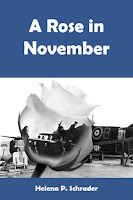
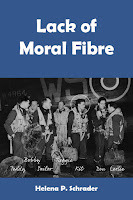
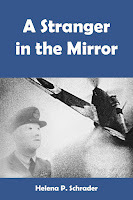
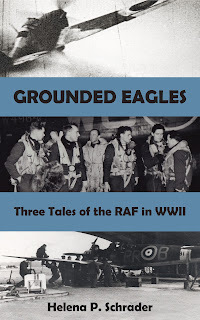
Where Eagles Never Flew was the the winner of a Hemmingway Award for 20th Century Wartime Fiction and a Maincrest Media Award for Military Fiction. Find out more at: https://crossseaspress.com/where-eagl...
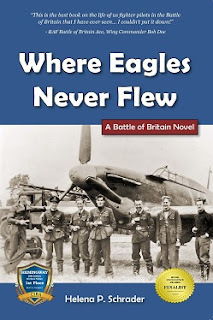
January 28, 2022
Forgotton Heroes of the Air War in Europe (1940-1945): An American in Bomber Command
It is widely known that seven Americans flew in the Battle of Britain with RAF Fighter Command and that later several “American Eagle” squadrons were formed in which all the pilots were Americans. These, however, were transferred to the USAAF when the United States entered the war and deployed units to Britain. Less famous are the Americans who flew with Bomber Command, where some individual American pilots successfully resisted the efforts of the USAAF to conscript them and remained in the RAF. I’d like to tell the story of one of them here: Hubert "Nick" Knilans.
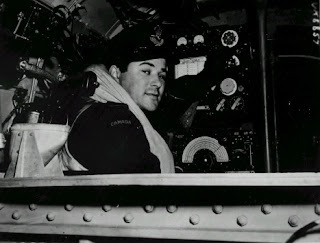
I was unable to locate a photo of Hubert "Nick" Knilans. This picture of a Canadian Lancaster Skipper is used courtesy of the Bomber Command Museum of Canada.
Hubert Knilans was born in Delavan, Wisconsin on 27 December 1917, to an Irish-American farming family. As a Catholic, Knilans grew up knowing that in his home town the white supremacist organization Ku Klux Klan was primarily anti-Catholic, although antisemitism was also prevalent. In the aftermath of the Japanese attack on Pearl Harbor, Knilans hoped that war would unite Americans and put an end to racial and religious discrimination.
In April 1941, Knilans was conscripted into the U.S. army. Knilans already knew he wanted to fly, but in the USAAF he had no chance of being accepted into flight training because he did not have a college degree. Therefore, without a word to his parents, he headed for Detroit, where he arrived utterly broke. With his last dime (figuratively speaking), he bought a bus ticket to Windsor, Canada. His reception by Canadian immigration was telling. He later claimed that they greeted him with the words: “I suppose you’ve come to join the air force?” — and directed him to the RCAF recruiting office nearby. Technically a deserter or draft dodger, Knilans joined the RCAF. He later claimed that he thought he could help “restore happiness to the children of Europe” by destroying Hitler’s regime.
Two years later, after successfully completing initial and advanced flight training, Knilans (along with many colleagues) crossed to the UK by ship in order to start operational training on multi-engine aircraft. Knilans made his trans-Atlantic voyage on the Cunard ocean liner Queen Elizabeth. The former luxury liner was at this time serving as a troop transport, carrying roughly 8000 troops instead of the intended ca 2,300 passengers.
In June 1943, Knilans at last joined an operational squadron, No 619 Lancaster Squadron based at RAF Woodhall Spa in Lincolnshire. From this point forward, he was known in the RAF as "Nick" Knilans, rather than by his given name. His first operational flight as skipper was on the night of July 24/25, flying against Hamburg.
In October, Knilans received word that — despite deserting from the U.S. Army two and half years earlier — he was to be transferred to the USAAF. He refused. Technically, he reported for duty was inducted as a First Lieutenant, and then detached or seconded back to the RAF to complete his tour with 619 Squadron. This was certainly a good arrangement for Knilans as his USAAF First Lieutenant’s pay was roughly the same as the salary of an RAF Group Captain. (Group Captain is the equivalent rank to Colonel in the USAAF.)
In December 1943, Knilan’s Lancaster was attacked by a night fighter on the way to Kassel. His mid-upper and tail gunners were both severely wounded, the rear gunner fatally. In addition, one engine was knocked out and the wings and undercarriage damaged. Nevertheless, Knilans managed to shake off the fighter and continued to the target. For this operation, Knilans was awarded the Distinguished Service Order (DSO). He was later to earn a British Distinguished Flying Cross (DFC), two American DFCs and five American Air Medals. He only wore the DSO on his battle dress, however, because as he explained it:
“I thought it would antagonize others on the same squadron, or confirm their prejudice about bragging Yanks. That was another reason that I did not want a scantily clad girl or a humorous name painted on the aircraft assigned to me. This flying into combat night after night, to me, was not very funny. It was a cold-blooded battle to kill or be killed.” (Source: RAF Museum Website, biography of Knilans.)
By now at the latest, Knilans no longer believed he was either making the children of Europe happy nor helping eliminate racism in America. His father wrote that the local country club remained closed to Jews, while he could see with his own eyes the racism and segregation practiced by the USAAF, even in the UK.
By January 1944, Knilans was also finding it increasingly difficult to engage in the kind of saturation bombing that had become Bomber Command policy. He therefore volunteered for transfer to 617 Squadron. Although 617 had the reputation of a “suicide squadron,” largely due to the exceptionally high casualty rates experienced on a number of its high profile missions, it was also a precision bombing unit. The commanding officers of 617, notably Wing Commander Leonard Cheshire, Wing Commander "Willie" Tait and Group Captain "Johnnie" Fauquier attempted to minimize collateral damage and casualties.
Knilans was not the first American to have flown with 617. At its inception, 617 had included another American flying with Bomber Command, namely Flight Lieutenant Joseph McCarthy. McCarthy had led the flight tasked with breaching the Sorpe Dam during the “Dams Raid” in May 1943. He earned the DSO for his actions on this raid.
In April 1944, Knilans had technically completed his first tour of operations (30 operational flights) but along with his entire crew he volunteered for a second tour with 617. He was one of several pilots tasked with testing the Tallboy bomb, the latest invention of the outstanding British engineer Barnes Wallis. The 12,000 lb Tallboy, when dropped from its optimal altitude of 18,000 feet reached a velocity of 1,100 ft/second on impact — or almost the speed of sound. It could penetrate 15 ft of concrete and triggered a local "earthquake" that made it effective even if the bomb failed to make a direct hit on the target.
On the night of June 5/6, Knilans and other 617 crews contributed to the successful landings in Normandy by dropping aluminum foil to deceive German radar into thinking ships and landing craft were approaching Calais. The aircraft had to fly back-and-forth on a precise course advancing at only eight kilometers per hour to simulate approaching ships.
Following D-Day, 617 Squadron and Knilans returned to operations against strategic targets such as the V-1 and later the V-2 launch pads, submarine and E-boat pens, rail bridges and tunnels used to transport troops and equipment to Wehrmacht units fighting on the Western Front. In one raid, for example, 130 E-boats, which would otherwise have hampered Allied reinforcements to the beachheads in Normandy, were put out of action.
By now, however, Knilans “had the twitch” (in RAF jargon). Increasingly, he had odd sensations in his hands and at times lost his orientation when flying. He described it as “losing his confidence progressively.” We would call it PTSD.
Knilans’ fiftieth — and last — operation was a strike against the German battleship Tirpitz in September 1944. The Tirpitz was faster than any British battleship and armed with 12 anti-aircraft guns, 16 inch-and-a-half, 12 six-inch and 8 fifteen-inch guns, all of which could be fully elevated to shoot at aircraft. The range of her fifteen-inch guns was seventeen miles. Thirty-three attempts had already been made to sink her, and she had survived attacks from torpedo bombers, midget submarines and conventional bombs — which simply bounced off her armor.
Thirty-six aircraft of Nos 617 and 9 squadron made the attempt to sink the Tirpitz in an operation that called for the aircraft to fly first to a Red Air Force base of Yegodnik near Archangel (a twelve-hour flight). From there, after rest and refueling, the aircraft were to attack the Tirpitz from landward. Navigational aids were minimal, and Knilans along with roughly half the other RAF bombers were unable to find Yegodnik before running out of fuel. Knilans managed to put his Lancaster down in a hay field. The next day, however, all four engines cut out shortly after take-off. He restarted the engines by diving but rammed a tall pine tree while recovering from the dive. The tree broke through the nose and shattered the cockpit Perspex. Knilans, nevertheless, safely landed the aircraft at Yegodnik on three engines. Three days later, the repaired aircraft with Knilans at the controls took part in the raid against the Tirpitz, contributing to the debilitating (but not sinking) the battleship. Knilans brought his Lancaster back to Woodhall Spa on September 17, two days after the raid on the Tirpitz. It was one of only 16 of the original 36 aircraft that returned, the rest having been lost in crashes and cannibalization for repair parts rather than enemy action.
Having completed 30 operations with 617 in addition to the 20 he had flown with 619, Knilans “retired” from the RAF. When he stopped flying for the RAF, however, his transfer to the USAAF went into full effect. He was repatriated to the U.S. and employed in the training establishment. He retired from the USAAF at the end of World War Two with the rank of Major.
Knilans vowed that after the war he would do something “constructive,” and chose teaching as the venue for that ambition. He worked as a teacher for 25 years, including two years with the Peace Corps in Nigeria. He was particularly dedicated to helping underprivileged children, particularly Mexican Americans, and also served as a counsellor in California prisons. He retired in 1978 and died in 2012. He never married.
(Sources: RAF Museum Website, John Nichol, Return of the Dambusters: What 617 Squadron Did Next)
I am trying to pay tribute to the men of Bomber Command in my most recent publications. "Lack of Moral Fibre" explores the reason why a decorated flight engineer refuses to fly on a raid to Berlin in late November 1943. The sequel, "Moral Fibre: Story of a Lancaster Skipper," will be released later this year.
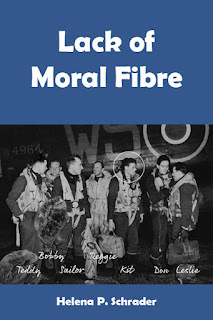
January 21, 2022
Why Write? The Theme or Message: Final Reflection of Ten on Creative Writing
When asked "why" I write, I sometimes try to explain that I am "compelled" and "inspired" Or I might say that I cannot stop, or that I am only happy when I'm working on a book. Sometimes I try to explain that I have stories inside me that need to be told. Yet such answers ultimately boil down to a single thing: I write because I have something I want to share with others. In other words, I think I have something to say, something that is of interest - if not importance - to others beyond myself and my immediate circle, namely the theme or message of my works.
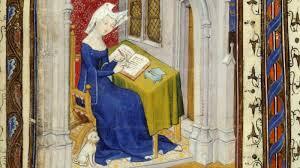
If I did not feel the compulsion to share my insights and inspiration with others, there would be no need to write them down, much less publish them. Yet for me personally, such a compulsion goes beyond the desire "to entertain." Entertainment is wonderful. We all enjoy it. It distracts us from our problems, cheers us up when we are glum, and chases away boredom. It is or should be pleasurable -- and is also mostly forgettable. "Mere" entertainment that distracts and amuses us before being superseded by the business of life -- or the next distraction.
When I write, I strive for more than entertainment. My ambition -- justified or not -- is to write books that are not forgotten the moment the last page is turned. My goal is to write books that will stay with a reader for the rest of their lives either by teaching them something or altering their attitudes and perspectives in some way. My hope is that my books can provoke thought, doubt, questions, and provide insight, new perspectives and even inspiration. In short, I want to share the things that move, agitate, concern or motivate me with others.
I have drawn my inspiration from other humans -- from human actions through the course of history. Humans are so diverse and so complex that I have never felt the need to invent fantastical beings to supplement much less replace them. Humans have the capacity to create great works of art and technology. They have the capacity to do both immense good and devastating evil. They provide infinite inspiration.
In my travels and studies, I occasionally encountered individuals of particular courage, creativity or compassion. Some of these inspired me to write about them. In doing so, I strove to include as much biographical and historical fact as possible, while exploring psychological and spiritual components outside the historical record. My goal has always been to depict the humanity my heroes, making them more accessible to ordinary people, while highlighting their exceptional qualities as an inspiration to us. Let me give just three examples.
Leonidas of Sparta hardly needs an introduction. He made the decision to defend the Pass at Thermopylae with his body guard of 300 Spartiates and 700 volunteers from Thespeia in order to enable the bulk of the Greek forces to withdraw and live to fight another day. Because of his sacrifice, the Greek coalition was able to field an army the following spring that definitively defeated the Persian invasion.
Yet while everyone knows about Leonidas' death, few know anything about his life. Leonidas is the subject of a three part biography, which seeks to explore what kind of man he might have been and what events (based on the historical record) combined to make him willing and able to make that heroic sacrifice. The trilogy consists of: A Boy of the Agoge, A Peerless Peer, and A Heroic King.
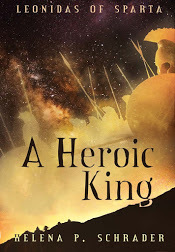
Balian d'Ibelin is less familiar to most, yet he was an important historical figure. Having defended Jerusalem against a vastly superior army with a garrison so denuded that there were 50 women and children for each fighting man, Ibelin negotiated a surrender that enabled the inhabitants to escape with their lives and freedom, but Saladin terms required a "ransom" payment for each person who walked free. Knowing that many people in the city were refugees, who had already lost everything, Ibelin also negotiated a lump sum payment for an estimated 8,000 paupers. When the day of payment came, however, there were 15,000 more paupers than had been covered with the lump sum (paid, incidentally, by the Hospitallers). So Ibelin offered up his own person to Saladin, surrendering his freedom until enough money could be raised from God-knew-where to pay for the poor. Saladin turned him down, but that does not detract from the profound compassion Ibelin had demonstrated.
Balian is the subject of four books that seek to reconstruct his development from a landless knight to the man Arab chroniclers describe as "like a king." The series includes his role at the Battles of Montgisard and Hattin as well as his defense of Jerusalem in 1187 and his role as Richard the Lionheart's envoy during the Third Crusade. The final volume speculates about his life after the Third Crusade. The novels devoted to Balian are: Balian d'Ibelin: Knight of Jerusalem, Defender of Jerusalem, Envoy of Jerusalem and The Last Crusader Kingdom.
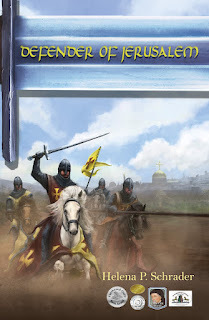
In June 1940, the fate of Western civilization hung in the balance. Nazi Germany had defeated and overrun Poland, Norway, Denmark, Holland, Belgium and France. In the United States, Congress and public opinion vehemently opposed "European entanglements." Great Britain stood alone and many in the British government advocated a negotiated deal that would have left Hitler in control of the continent of Europe for decades to come. That it did not come to that is thanks to just a few hundred RAF fighter pilots -- supported magnificently by ground crews and led brilliantly by some of the least-appreciated strategists of WWII. Yet the average age of these men was 20. Most were not old enough to vote. Many did not have a drivers' license. In their youth and naivety lay an irrepressible enthusiasm for life and as yet untarnished idealism. They could at times be remarkably juvenile, immature and irresponsible, yet they demonstrated mind-boggling selflessness -- again and again. Such heroes deserve tribute.
Which explains why there are many books and films about the Battle of Britain already! However, it noticed that the vast majority of novels about the Battle of Britain focus on a single pilot and his girl — or at most a single squadron. That is rather like trying to see a panorama through a keyhole. I chose to write a novel that widens the perspective by consciously opting for a large cast of characters and interweaving a range of plot-lines into the book. Thus, Where Eagles Never Flew isn’t just about RAF pilots on the front line, but also ground crews, controllers, the training establishment, British civilians, and Germans. RAF Battle of Britain Ace Wing Commander Bob Doe called it "the best book" he had ever seen about the Battle, adding that the book got it "smack on the way it was for us fighter pilots."
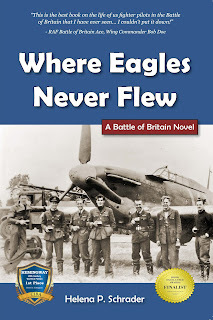
January 14, 2022
Description: Part IX of a Ten-Part Reflection on Creative Writing
Description is as at least as important in historical fiction as in any other kind of fiction. For an author writing about an unfamiliar period or environment (13th century Ethiopia, anyone?) descriptions are even more important because the reader cannot be expected to imagine things without more intensive assistance. In historical fiction, the author's words must often provide the images that are unnecessary in books set in our own time for which we carry around images already.
Admittedly, when talking about writing, the importance of good descriptive writing is often overlooked. I think this is because description is more a means to an end than an objective in itself. The key elements of a modern novel are plot, character and theme. We have novels that are compelling on the basis of plot alone (e.g. thrillers) and novels that are appeal solely on the strength of their characters (e.g. much literary fiction), but no novel can be convincing and successful simply because it has strong descriptions of a dull plot or uninteresting characters.
Yet good description can contribute materially to the success of a novel. Good descriptions enhance the other elements. Good descriptions also serve as a kind of mortar, binding plot, character and theme together. Good descriptions enable us to see and understand characters better, and to envisage the places/instruments/tools and events that constitute the plot.
Descriptive passages are those in which an author’s voice is most direct. Dialogue should give the characters their own voices, and plot elements are usually strongest when they are least embellished.
Last but not least, dialogue and critical plot developments are usually fast-paced. Description, on the other hand, is a means of slowing down a novel. Descriptive passages and paragraphs allow the reader to catch their breath and reflect on what is happening.
Broadly speaking, description falls into five categories:
1. Description of the setting/environment. Something that usually takes place at the beginning of a scene or change of setting/venue.
2. Descriptions of characters. Again, usually undertaken when a character is first introduced.
3. Descriptions of things. This can be clothes, buildings, means of transport, tools and technology. These kinds of descriptions tend to be particularly important in science fiction — and historical fiction, in as much as the author feels the reader is unfamiliar with, say, what a galley looked like or how people dressed in 16th Century Iceland.
4. Descriptions of action. This can either be narrative transitions from a previous scene, or intensive depictions of developments. (Plot)
5. Descriptions of mood. These are the most important descriptions in my opinion — once the baseline physical descriptions of people and places have been established.
Let me give an example of each of these from my most recent releases, Where Eagles Never Flew and Grounded Eagles.
Setting:
This is from the opening chapter of “Lack of Moral Fibre” one of the three tales included in Grounded Eagles. It describes the setting of the entire book, the RAF DYDN Centre at Torquay, where the flight engineer Christopher “Kit” Moran has been sent after refusing to fly on a raid against Berlin in late November 1943. He is facing disciplinary action for “Lack of Moral Fibre” — that is cowardice.
It was disorienting to be in what had evidently been a hotel. Although now outfitted with standard-issue RAF furnishings, remnants of its former grandeur lingered in the ceiling mouldings and gracious, bay windows. If it hadn’t been sleeting, there might even have been a view to Torbay. Instead, visibility was so bad that everything beyond the windows was just a blurry white and grey. That backdrop highlighted the gloomy interior. The lobby furnishings were run-down, and four years of war had marked the inhabitants, too. Unremittingly dressed in Air Force blue, their averted faces were strained and prematurely lined.
Kit took the key, shouldered his kitbag, and found his way up two flights of stairs to room 24. While the lobby had been overheated, the hall was bitterly cold. He unlocked the door and found himself in a modest room with two twin beds. He was taken aback to find one of the beds already occupied by a man wrapped in blankets.
“Sorry! I must have the wrong room!” Kit started to back out.
“No,” a voice rose from the bed. “They double us up like this.”
“Oh, of course,” Kit nodded to himself. Why hadn’t he expected that? He’d expected far worse. He entered and closed the door behind him before introducing himself, “I’m Christopher Moran, but I go by Kit.”
“Oliver Huckle, and if you don’t mind, I don’t want to talk.” His roommate rolled over, offering his back.
“Fine by me,” Kit muttered. He didn’t particularly want to talk himself. He tossed his kitbag on the vacant bed and started unpacking his things. He’d done this countless times on countless RAF stations for almost four years now. This was just another move, one more posting. Except it wasn’t.
Kit went to the window. Sleet pelted the glass, making a high ticking sound before melting and slithering down the slick surface. His breath rapidly steamed up the inside. Kit raised an index finger to write in the condensation: LMF — for Lack of Moral Fibre.
Character:
This description introduces the main protagonist of “A Rose in November,” the second novella in the Grounded Eagles trilogy. Rhys, the son of a Welsh miner, is now a senior NCO in the RAF and a widower with two teenage children — and he’s about to get sucked into an unexpected love affair with an upper class woman.
As Rhys stared into the mirror he couldn’t grasp that he wasn’t still that overly-thin young man with black hair and eyes, but rather a man whose face had become square with flesh and whose hair was silver-grey. He’d always been short (came from generations of crouching underground, his Mum said), but back then, he’d been as frail as a jockey as well. Now he’d grown stocky. Not fat, he told himself, sucking in his stomach and squaring his shoulders for the mirror. But he’d have to watch it, he reflected as he turned sideways and considered his figure more objectively. At least his hair was still thick, he thought resignedly, as he scraped away at the crop of stubble on his cheek, careful to leave his thick, drooping moustache untouched.
Things:
The aircraft that won the Battle of Britain, the Hurricane and the Spitfire, both feature prominently in my Battle of Britain novel, Where Eagles Never Flew, but most of the characters in the novel are already pilots familiar with the aircraft and to describe it at length when in their POV would feel like the author butting in. The visit of the lead protagonist’s girlfriend to a training station, on the other hand, was a perfect opportunity to describe the Spitfire in greater detail:
Emily felt her heart in her throat for a moment as her bottom sank onto the worn seat, and she was enclosed by the smell of metal and oil and aviation fuel. Directly in front of her was the confusing instrument panel and, beyond, the snout of the mechanical beast loomed up, cutting off her view. Before she knew what she was doing, her feet settled on the pedals, and with an audible clack the rudder shifted. She jumped slightly and yanked her feet back guiltily.
“Not to worry,” Robin assured her from where he stood on the wing root. He pointed out the various instruments and the ‘joy stick.’ Emily’s thumb slid over the trigger. How easy it must be to push, she thought. The thought frightened her. She pushed herself back up and gave her hand to Robin. “Take me up in the other plane, please.”
Action:
This example of describing action is from “Lack of Moral Fibre.” It describes Lancaster engaged in the RAF night bombing offensive against the German capital and is based on primary sources, although the characters are fictional. Note: RAF bombers did not fly in formation as the USAAF, but rather flew independently to the target, navigating their own way there and back but according to a tight schedule that put them all over the target within a short timeframe of 20 to 30 minutes.
As they turned south for Berlin, however, the fierce winds were on their tail, pushing them southwards. Sailor warned that they would be over the target as much as 30 minutes early. Hamed pointed out that if that were true, the Pathfinders wouldn’t have laid down the target indicators yet. So, Selkirk throttled back and started flying long, slow zigzags across the sky to the north of Berlin to slow their southward progress. This had the advantage of giving the gunners a better view below and behind them. Yet the sky remained eerily empty until Ramsey reported: “Flares! Mid-Upper gunner to pilot: Flares to starboard.”
Selkirk banked the heavy bomber toward the flares. “Pilot to navigator: How many minutes to the target.”
“Eight to ten if we go straight in.”
“Please give me a time hack.”
“22:15.”
“Wireless operator to pilots: Bomber Command has moved Zero Hour forward by five minutes.”
They heard Selkirk sigh over the intercom as he swung out in another lazy sweep away from the target.
“Berlin looks — Sorry — Rear gunner to pilot: Berlin looks like its on fire already.”
They turned back toward the city which was, they noticed, partially covered by cloud. This layer of rumpled fluff was rapidly turning red and yellow as if there was an inferno burning underneath. Had the other bombers gone in early? Had the raid been moved forward not five but fifteen minutes?
Without comment, Selkirk turned back toward Berlin and opened the throttles. Suddenly, another Lancaster cut across their bows no more than 100 feet away. They missed the tail fins by what felt like inches. It happened so fast that no one aboard Y-York had a chance to say anything.
After Moran’s pulse had returned to almost normal, a cold fear settled on the back of his neck. The winds had disrupted everyone’s navigation to the point that 800-something bombers were scattered all over the sky and flying every which way to get back to the target for Zero Hour. He supposed that made the risk of collision about 800 times higher than during a normal operation.
The closer they came to Berlin, the more confused the picture became. Rather than clear target indicators, there appeared to be two different flare paths, leading in divergent directions.
Hamed was the one to figure out what was going on. “Skipper! Ignore the flares at 2 o’clock! Them’s a German diversion! Can you see? Them’s some Jerry bomber laying ‘em out.”
“Well done, Teddy,” Selkirk praised.
They followed the Pathfinder flares. Strangely, the searchlights, which usually didn’t bother on a cloudy night, were probing the under-bellies of the cloud. Here and there they broke through gaps in the clouds to light up a cone of the night sky, but it was impossible for them to coordinate and triangulate on a bomber. Which seemed like a good thing until Teddy called up from his bubble. “Bomber aimer to the rest of ye: the light below the cloud is like background lighting to a puppet show! I can see dozens of Lancs out there — perfect silhouettes against the light — and so can the wild boars. We might as well be naked on a big stage!”
“There they are! Seven o’clock,” Rhodes called from the tail followed by the chattering of his guns.
The fighter were, in fact, all over the place, and soon the sky was illuminated by the flames of burning aviation fuel as one after another RAF bomber ignited.
Y-York lined up on the bomb run. Hamad was calling out: “Left. Left. Steady. Right. Steady.”
Just then a wild board homed in on a Halifax flying to port. First one and then a second engine burst into flame. The Halifax veered sharply toward Y-York, and Selkirk just managed to avoid a collision by yanking the Lancaster upward and banking away.
“You call that straight and level, Skipper?” Hamad shouted furiously. “This is supposed to be—”
The rest of his words were lost in the explosion that erupted with such violence that the Lancaster’s tail was flung upwards. They started to dive. Before Selkirk recovered control, they were engulfed by waves of molten smoke washing over the Lancaster from behind. Bits and pieces of debris rained down on their fuselage. They all heard Sam Rhodes yelp.
Mood:
For me, the most important function of description is to evoke mood. The same scene or place can be depicted in a variety of ways to pull the reader into the character’s skin and see it through his/her eyes coloured by his/her mood and feelings. This example is from “A Stranger in the Mirror,” the third book in the Ground Eagles collection. The protagonist David “Banks” Goldman is a former fighter pilot who was severely burned when his Hurricane was shot down. After extensive plastic surgery to restore his face, he has been sent on leave to regain some strength before undergoing more surgery.
After Mr Bowles left, Banks cleaned up and then went for a walk. He followed a narrow footpath that led down the slope on the far side of the barn behind the cottage — and got lost in the English countryside.
At first, it was only figurative. Banks stopped thinking consciously and just let the sights, sounds and smells lead him. As he wandered, the war was forgotten, replaced with fragments of poems and melodies and pleasant memories. When he discovered a creek gurgling contentedly as it carried off last autumn’s rotting leaves, he sat down on a rock and let the sun soak his face. He wondered if the different strips of skin would absorb the sunlight at different rates, exaggerating the effect of the patchwork or if a tan would help smooth over the differences. He dozed off for a bit.
Banks was awoken by a breeze that stirred up the debris of autumn and swirled it around him. Clouds were rolling in from the West and the temperature had dropped. He got up, stiff from the damp and the hard rock. He started walking back the way he’d come but soon came to a hedgerow he didn’t remember and couldn’t cross. He turned around and tried a different path. This brought him to a stone wall he had not seen before. He had utterly lost his way.
By then, the sky was almost completely overcast, and a cold, brisk wind was blowing. Banks decided to follow the wall, thinking it might lead to a house. It didn’t. In the distance, he spotted a road, and he crossed a muddy, ploughed field to reach it. By the time he stepped out onto the dirt road, his feet were soaked, his trousers muddy, and fog had settled over the entire landscape.
Banks was hungry and frustrated. All the pleasure he had experienced earlier while discovering the beauty of Ginger’s countryside had evaporated.
The Grounded Eagles Trilogy is available in paperback or ebook format.
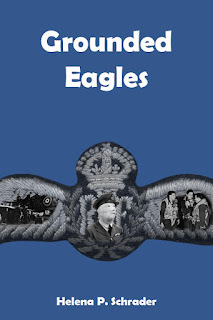 Buy Now!
Buy Now!The three components of the trilogy can be purchases independently in ebook format:
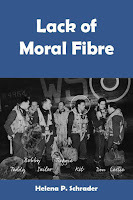
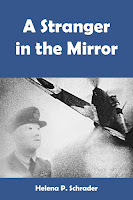
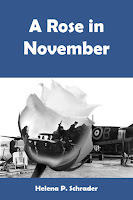
January 7, 2022
Dialogue: Part VIII of a Ten-Part Reflection on Creative Writing
Dialogue is particularly tricky in historical fiction because this is when the characters, who by definition live in a different age and society, come most to life. Because characters are supposed to be embedded in their own time, it is tempting to put antiquated speech into their mouths in order make them sound like they are "historical." The problem with that is that most authors don't have a good grasp on how people actually spoke in times past, and the problems get greater the farther back in time a novel is set. It is useful therefore to segment the discussion into two parts: Novels set in the ancient and medieval eras, and novels set in the last couple of centuries.
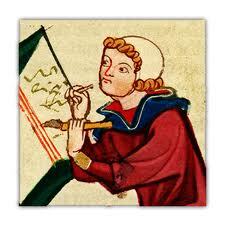
NOVELS SET IN THE MORE DISTANT PAST, PARTICULARLY ANCIENT AND MEDIEVAL TIMES
Remember, the language of every book is the language in which it is written or into which it is translated. That is not necessarily the language used by the characters in the book. Any book written in a language not used by the characters is in effect a translation. Thus for novels written about periods in the distant past or lost civilizations, the dialogue cannot accurately reproduce the language of the time and place, it can only provide a modern translation of the language used in those places and cultures.
This does not mean, however, that readers want a book set in, say, Ancient Egypt to be littered with modern American idiom. If an ancient Pharaoh is depicted speaking like Donald Trump (crude, insulting, disjointed and juvenile) then most readers will see the book as a satire of America in the Trump era rather than a work of historical fiction.
In short, if a novelist wants his/her book to be read and treated as historical fiction evoking a past time and place, then the dialogue must have a “timeless” quality about it, divorced from the jargon, dialects, and “buzzwords” of today. It is not OK for a medieval knight to say “Gotcha!” and “Waste him!” or for a Roman centurion to say “Roger that!” and “Awesome.”
However, it is just as counterproductive to use stilted, antiquated language that is, ultimately, no more accurate than modern slang, yet equally distracting to the reader. So forget the “doths,” and “thees”. Don’t replace “my” with “mine” or place adjectives after nouns (“the evening dark had set mine lady’s heart afire…”) Unless you are writing about Elizabethan England, don’t try to sound like William Shakespeare — and maybe not even then as you will undoubtedly fail.
EXAMPLE ONE: In the following excerpt from Leonidas of Sparta: A Peerless Peer
the text uses words specific to Ancient Sparta such as “kleros”, “perioikoi” and “helot” as well as terminology from the period such as himation. The characters express contemporary — not modern — notions of morality. Yet the language used is neither antiquated nor modern.
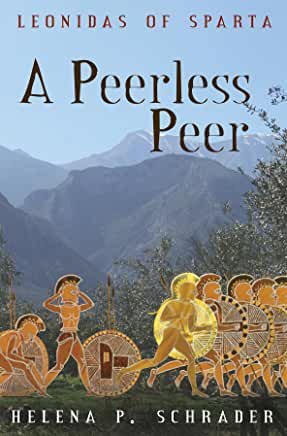
“I wanted to talk to you about something,” Nikostratos confided.
It was pitch dark, and although it had been one of those sunny days that promised the return of spring, with the sunset winter seemed to have returned with a vengeance. Leonidas paused to wrap his himation more tightly around him.
“It is not good for you to keep that perioikoi girl, the one picked up for soliciting, on your kleros. People are talking about you.”
“People, or my brother Brotus?”
Nikostratos frowned and insisted, “People — including your brother Brotus.” He stopped and faced Leonidas. “You’re a bachelor, Leonidas. You can’t keep a whore on your kleros without people talking about it.”
“You mean it would be better if I were married?”
“Yes — because then your wife would be in charge of your kleros, and since no self-respecting woman would let her husband keep a rivl under her roof, people would recognize that, whatever else the girl did, she did not warm your bed.”
“I don’t see how the temperature of my bed is anyone’s business.”
“The morality of every Spartan citizen is the business of us all,” Nikostratos reminded him.
“The girl was thrown out of her own home for being a victim of Argive brutality, and you want me to throw her out again just because some tongues are wagging behind my back? Listen: if you hear someone say a word against me, tell them to say it to my face!” Leonidas was getting worked up.
“Stop being stubborn, Leo. This doesn’t have to be blown out of proportion. This girl isn’t your kin. She is perioikoi. You are not in any way responsible for what happened to her.”
“Aren’t I?” Leonidas stopped, making Nikostratos stare at him. “Aren’t we all? What happened on Kythera was our fault. We left it undefended, then took over a week to respond. All the while, the Argives were rampaging across the island — plundering, burning, raping and murdering. There were scores of girls who suffered what Kleta did, only most of them are now dead. Because we failed them.”
“We can’t be everywhere at once.”
“We collect taxes and tolls from the perioikoi, don’t we? We demand their absolute loyalty and require them to send their sons with us as auxiliary troops whenever we operate outside our borders, don’t we? e even expect them to help put down helot unrest if necessary.”
Nikostratos was frowning. “What are you driving at, Leo?”
EXAMPLE TWO: This scene from Defender of Jerusalem
shows a confrontation between King Guy of Jerusalem and one of his most powerful barons, Balian d’Ibelin, Lord of Nablus. It is extremely tense because the King has called up the feudal army to attack one of his vassals, the Count of Tripoli. Ibelin knows that an attack on Tripoli will destroy the Kingdom of Jerusalem — and so does the King’s elder brother Aimery. The language is modern (although men are referred to in the medieval fashion by their titles rather than their names) and not fully sanitized, but it is probably not the language I would put in the mouths of contemporary leaders quarreling either. The period is evoked by the use of medieval forms of address (my lord, your grace) and references to feudal obligations not by creating artificially “old-fashioned” language.
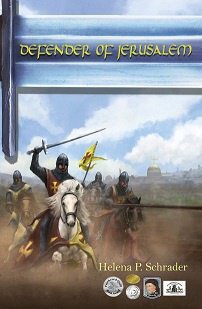
When the squire was gone, Aimery confronted his brother. “Edessa’s clever plan may have opened the doors of the Holy Sepulcher, and Heraclius and Sibylla between them may have put a crown on your pretty golden locks, but a fat count, a stupid woman, and a debauched priest cannot keep you on your throne. More important: they cannot save your ass from Salah ad-Din! Do I make myself clear?”
Balian held his breath, knowing that Aimery was the only man in the world who could talk to Guy de Lusignan like this — even now the elder brother to the young brother, no matter that the young was an anointed king. Guy wat with his jaws clenched and his face flushed, but he did not interrupt or talk back.
Aimery continued, “You can either rip out your own guts by attacking Tripoli and leave two gutted carcasses for the Saracens to finish off, or you can reconcile with Tripoli and reunite this Kingdom.”
“How the hell can I reconcile with a man who refuses to accept me as his king?” Guy shouted at his older brother. In that instant, Balian saw Guy’s fear and insecurity and held his breath in hope.
“By begging him!” Aimery answered coldly, looking his brother in the eye. “Beg him on your knees if you have to. Tell him you need him. Thank him for his past service. Flatter him, cajole him, honor him, humor him. But stop treating him like an enemy and make him an ally!”
When Guy did not answer, Ibelin risked speaking up. Cautiously, he noted, “I have spoken to Tripoli, your grace. He called his agreement with Salah ad-Din ‘defensive.’ His wife expressed sincere fear that you planned to attack her lands—”
“Nonsense! Why should I attack Tiberias?”
“Why, indeed?” his brother answered pointedly.
Guy glared at him. “What I meant is, I have no quarrel with his lady. It is Tripoli who has refused to pay homage. Until he does—”
“No! Stop! He’s checkmated ou with the alliance with Salah ad-Din. He does not have to come to heel under the circumstances. All Ibelin is right about how strong Tiberias is. ith the forces you have, you’ll hardly be able to invest it. You cannot force Tripoli to submit. You need to give him a reason to bend his knee.”
Petulantly, Guy protested, “HE was demanding Beirut, and refusing to give account for his expenditure as regent—”
“Forget it! Forget all your grievances against him. Forget everything but the essential fact that you need his two hundred knights if you want to still be king six months from now.”
“You expect me to just capitulate? To grovel at his feet?” Guy whined, already sounding small and deflated.
Ibelin took a deep breath, and with a glance at Aimery noted gently, “That won’t be necessary. Tripoli knows how damaging this fight is. He loves Jerusalem. If you demonstrate our goodwill by disbanding the army and returning to Jerusalem, and then give him a bridge to walk over, he will find his way.”
NOVELS SET IN THE RECENT PAST (20TH CENTURY)
In contrast, novels set anytime in the last century depict an era in which the language used is completely comprehensible to us today. We don’t actually need to translate the language of the characters in these books (unless they are set in a foreign setting) and the language therefore can be more authentic. In short, in novels set in the 20th century, authors should indeed make every effort to use the idiom of the period in which the novel is set.
Obviously, that still means that modern slang is inappropriate. People in the First World War did not talk about being “cool” or “chilled,” and attractive women weren’t “hot chics.” Equally difficult for some modern writers is that some terms that are now offensive were acceptable in the 1930s and 1940s. For example, in much of the U.S. adult black men really were still addressed as “boy.” Another ticklish problem is finding appropriate expletives and terms for cursing. Modern terms were simply not used, but the language then used (e.g. “bloody”) does not offend the modern reader — and so does not convey the emotion desired.
EXAMPLE THREE: Writing about the RAF in WWII required learning an entirely new vocabulary of terms — and using it correctly. I include a glossary in my novels set in this environment because not all the terms are intuitive. But it isn’t only the language itself that was different. Influenced by the use of radio communication, the RAF tended to speak in incomplete sentences — a staccato speech pattern that is well illustrated by the following brief exchange from Where Eagles Never Flew
.
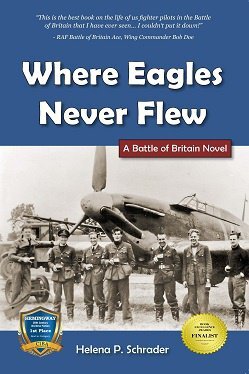
Shakespeare woke him in the dark. “Time to get up, Robin.”
“What time is it?”
“Time to get up.”
“What time is that?”
“If you insist on the ugly details: 3:25 am. The lorry will be in the square in five minutes.”
“Dawn Patrol.”
“Isn’t that the name of a flick?”
“With David Niven, I think.”
“I don’t think it had a very good ending.”
“Not for everyone.”
EXAMPLE FOUR. This exchange, also taken from Where Eagles Never Flew, includes more of the RAF terminology and jargon, but it is also important for showing how language can convey the culture of an era or institution. The same incident if playing out at a USAAF squadron would sound entirely different.
“We thought you’d bought it, sir,” Woody admitted. He sounded more stunned than gratified.
“Not yet, so you’ll have to postpone the party. Is there tea anywhere?”
“I’ll get you some, sir,” Ginger offered, ducking back into the dispersal.
The others were still staring. “I understand you got a Heinkel, Woody.”
“Yes, sir.”
“Well done. Donohue?”
“I got is some good bursts at a 110 and saw the starboard engine catch fire, but didn’t see him go in. Got distracted by a Messerschmitt.”
“Eton?”
‘There was a bloody great free-for-all after you — I mean — we came out the other side of the bomber formation and got jumped by a hoard of Messerschmitts. F/O Ware tried to climb into them, but they were already coming down, and one cut in from of me. I got in a good squirt and when I looked back, there he was streaking down with a long tail of smoke. I know he went in.”
“Very likely, but the 109s were coming down because they’d been bounced by Spitfires at higher altitude,” Priestman pointed out. “You probably shot at an already dead pilot.”
Eton frowned. “But, sir, he passed right through my sights.”
“What speed do you think he was going?”
“400 mph at least, sir!”
“And how far away was he?”
“Maybe three hundred yards — four at the most.” The others burst out laughing.
Priestman waited for them to quiet down. “Eton, do you want to step inside and let me give you a short lesson on the Browning machine gun.” It was not a question, and the boy looked decidedly disheartened as he stepped into the comparatively dim light of the dispersal hut.
“Trigonometry wouldn’t hurt either, sir,” Sutton called after them.
“Oh, and, sir?” It was Donohue.
Priestman stepped back to the door and looked out expectantly. “I just wanted to let you know that I am not a virgin.” There were guffaws of laugher from the others, and Priestman shook his head and turned away. “Eton—”
The telephone rang. Paralysis.
“606 Squadron Dispersal.”
The clock ticked. The wind blew. The pilots of 606 hung in suspended animation. No one was breathing.
“One moment, sir.” The clerk turned to Priestman. “It’s the Adjutant, sir. He’d like to speak to you.”
Priestman took the receiver. The others exhaled and resumed their activities. Eton fussed with is silk cravat. “Priestman.”
“Congratulations, sir! You’ve just been awarded the DFC. The wire’s just come in — and they didn’t even know about the two you got today. I’m so pleased for you, sir! I’ve rarely known anyone who deserved it so much!” Mickey sounded so sincere, Robin was touched.
“Thank you, Mickey. Could you do me a favour?”
“Of course. What would you like me to do?”
“Organise something. A dance. With a real band. Something everyone can enjoy. The erks, too, and the WAAF, of course. Not in the Mess; the cooks and stewards are overworked as it is. Do you think you could do that?”
“For tonight, you mean?” Mickey sounded overwhelmed.
“No. There’s no rush. What day is it today?”
“Monday.”
“All right. Thursday or Friday.”
“Don’t worry, sir. I’ll fix something up.”
“Thanks.”
There was a commotion going on outside. Robin pu his head out the window to see what it was about.
Kiwi was towering amidst the others, still in his Mae West and parachute. The latter was dragging along behind him and occasionally billowed up as it caught the wind. “Down, boy, down!” Kiwi admonished the chute when it tugged at him. “Behave yourself!”
“Where the devil did you come from?” Priestman asked, very relieved to see him.
“Ahhhh!” Kiwi reacted as if he’d seen a ghost. “You were the one who blew up!” He crossed himself.
“I did nothing of the sort, but I hear you collided with a bomber and wrecked your Hurricane. That’s what comes of not keeping your distance as ordered.”
“I get your point, Skipper.” Kiwi grinned at him, and then turned to admonish his parachute, “Behave! You’re in company!”
“And Kiwi, get out of that useles ‘chute and collect a packed one.”
“See! You’ve got yourself posted!” Kiwi told the parachute. “I warned you not to much about in front of the CO!”
Robin shook his head and withdrew back inside the desperal hut to give Eton his lesson on the effectiveness of gunfire from different ranges. But the telephone was ringing again.
“Bloody thing!”
“606 Squadron Dispersal…. SCRAMBLE! SQUADRON SCRAMBLE!”
For more about my novels visit my website at: http://helenapschrader.com
December 17, 2021
Favorites: Part VII of a Ten-Part Reflection on Creative Writing
While I often compare my books to children and feel one should love them all equally, some individual characters have captured my affection more completely and firmly than others.
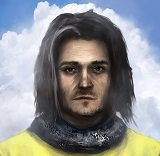
As I have written elsewhere, while some of my characters are my own creation, other characters exist independently. I don’t mean they are simply based on someone I’ve personally met or read about, I mean that they have a will of their own and a personality so powerful that I acknowledge that I have not invented them at all. They have revealed themselves to me instead, allowing me to employ them in my works of fiction.
Some of these characters are minor, even incidental, to the plot of my novel, but they add color and often humor and round out the novel is some way.
One example of this is the dog Barry.

Barry is a stray who begs for handouts in an outdoor cafe in Acre. A young squire, John d’Ibelin, throws him some scraps and the dog runs around the corner with them to eat. When John is finished and starts to walk back to his lodgings, he discovers the dog had been taking the scraps around the corner not to eat them but to feed his master, a legless leper and beggar. Barry features in my novel The Last Crusader Kingdom
Or there is Godwin Olafsen, an armorer, who told me his story while I was writing about the siege of Jerusalem in 1187.
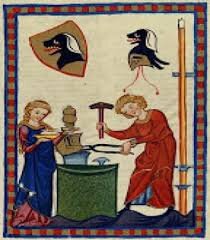
He told me how he and his wife and come as pilgrims to Jerusalem because their son Sven had been crippled in an accident. But even following Christ’s footsteps on the Via Dolorosa had not restored their son’s health. With no money to return home, they remained in Jerusalem and found themselves trapped there when Saladin laid seige to the city. Olafsen worked day and night to repair the arms and armor of the fighting men and being a good Christian he charged them nothing for his services — but when the city fell to Saladin he had no money to pay his ransom or that of his crippled son and so faced slavery. Godwin’s story is told in Defender of Jerusalem
Another one of my favorite characters is Sir Bartholew, a loyal household knight.

Having fought beside his lord Balian d’Ibelin at Hattin has escaped the slaughter only to discover that his two daughters have both disappeared in the wake of Saladin’s conquest of the Kingdom of Jerusalem. Visualizing all to well what has probably happened to his daughters, he remains beside his lord a constant reminder of the sufferings of the enslaved. Sir Bartholomew is an important secondary character in Envoy of Jerusalem
Yet, without doubt, the characters that I love best are the ones who are responsible for me writing entire novels in their honor. Robin Priestman is one of these.
[image error]As I said in a recent interview with C-Suite Network
, although Priestman is not a known historical figure, whose memoirs one can read, I do not for a moment believe he is just a figment of my imagination either. He did and said far too many things that surprised me for me to have created him. I personally believe he was an RAF squadron leader, although he went by his real name, but one who did not write his story during his lifetime — which is why he decided to use me as his voice. He is one of several heroes in my Battle of Britain Novel, Where Eagles Never Flew.And then there is my current favorite, Christopher “Kit” Moran, who has succeeded in making me stop work on another book and devote not one but two books to his story.

The first of these is my novella Lack of Moral Fibre
, which examines his fate after refusing to fly on a raid to Berlin in late 1943. Having been posted off his squadron for “Lack of Moral Fibre,” Moran faces severe disciplinary action for cowardice, and the novella examines the factors that have brought him to this crisis. The second book is my current work-in-progress.
I hope my readers will fall in love with these and others of my characters!
December 10, 2021
Secondary Characters: Part VI of a Ten-Part Reflection on Creative Writing
As someone fascinated by human behavior, writing complex novels rich in characters has always been a feature of my style. Yet character rich novels can all too easily get bogged down in a plethora of sub-plots, and too much detail about secondary characters can detract from the effectiveness of the novel. So over the years, I've tried to become more economical in my treatment of peripheral characters, i.e. those not at the center of the novel. In doing so, I've found it useful to think of characters fitting into a pyramid with the main protagonist(s) at the pinnacle, and the "cast of thousands" at the bottom. Below is a short description of how I try (not always successfully!) to handle these various categories of supporting characters and some examples from my writing.
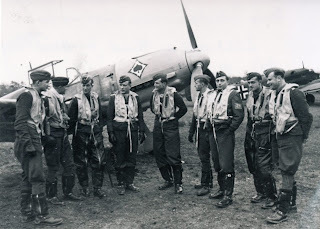
CAST OF THOUSANDS
I define these as the characters who have no role in the development of the character, the advancement of the plot or the illumination of the theme. Such characters should not be particularly nuanced or complex.
For example: the hero of Traitors for the Sake of Humanitylives is in an apartment house with a concierge. This man is more a prop than a character. Yes, he has one brilliant line at the end of the book, but he doesn’t need to be nuanced or multifaceted. In many cases even giving these characters a name is unnecessary — unless they need to be addressed directly by the other characters.
TERTIARY CHARACTERS
Just a step above the cast of thousands are characters that do in some way impact the plot, character or theme, but only in a single episode or encounter. Nevertheless, such a character needs to be more than a prop. He/She is not interchangeable. She/he must be precisely drawn and carefully defined. Although we see only a “snapshot” of these characters and need not know what they do, think, or feel in other contexts, the image we have of them should nevertheless be sharp. Here are two examples:
Tertiary Characters — Example One: the Cripple from A Stranger in the Mirror
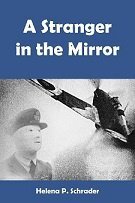
The door was pulled open and Banks was confronted by a frail, middle-aged man sitting in a wheelchair; he had no legs. The man stared back at him in obvious shock. Then he said, “You must be Ginger's friend that Bowles has been going on about for months. Kept telling everyone—whether they wanted to hear it or not — that some fine gent was coming to stay with him. Rich man’s son, he said.” His tone and expression were sneering.
“Yes, that’s right.” Banks kept his tone neutral and polite. “Ginger and I served together in the same squadron.”
“Hmphf! Didn’t believe Bowles. Thought he was making it all up.” The man admitted. His eyes were riveted on Banks’ face. “Huns did that to you, did they?”
“Flames from my engine did it to me,” Banks corrected.
The man’s eyes narrowed a little before he declared, pounding his fist on the arm of the wheelchair, “The Huns did this to me! Somme, November ’16.”
Banks heard the bitterness in his voice, but he knew the price Germany had paid too. His mother had lost two of her brothers. Their housekeeper in Hamburg had lost four sons. His nanny had lost her fiancé. Before the churches of every town the legless beggars clustered, and the graveyards of even the tiniest village marked the slaughter of a generation. He said simply, “I’m sorry.”
“Everybody’s sorry!” The legless man snapped back. “A lot of good that does me. Doesn’t give me back my legs or my life, does it? Did you bag the bastard that hit you, at least?”
“I didn’t even see him,” Banks admitted.
“Got plenty of others first though, I hope? I certainly did.”
“Good for you,” Banks uttered without feeling. He was still picturing the faded photographs on the endless tombstones in his mind.
The legless man’s eyes narrowed again. “You’re an odd bugger — just like Bowles and his kid.” With a contemptuous gesture he concluded, “If you want to get back to the dump Bowles lives in, just go down there,” he pointed to the right “about a quarter of a mile you’ll come to a crossroads. Turn left there and keep walking.”
“Thank you,” Banks said politely and walked away.
He had been cold before he rang the bell, but the encounter with the cripple chilled him to the bone. He didn’t want to end up like that. Embittered, hopeless, living on hate.
Tertiary Characters — Example Two: Maggie from Lack of Moral Fibre:
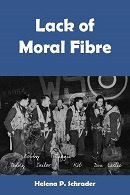
As they settled onto the couch to sip their drinks, Maggie remarked, “I haven’t seen much of Fiona recently. Aren’t you seeing each other anymore?”
“Oh, we still try to meet up now and again, but it isn’t as easy since I was posted to Training Command. Don’s hoping to get us posted back to 626 Squadron, however. If so, we would be close to Lincoln again.”
“Are you serious about this second tour?” Maggie asked as if she couldn’t believe him.
“Yes, of course.”
“Why?” Maggie asked bluntly. Then before he could open his mouth to say anything, she demanded in an aggressive tone. “Don’t you ever think about what you’re doing? I mean, dropping tons of high explosives on people’s heads.”
Kit was taken aback by her attitude and the vehemence with which she spoke. He knew she would not have dared ask such a question in her father’s presence, and he suspected she had not subjected Don to her outrage over bombing either. He was the target of her anger because she didn’t particularly care what he thought of her. He tried to answer calmly. “We target military installations and war industries, things like aircraft and tank factories, U-boat pens, synthetic petroleum and rubber plants, steel mills and ammunition depots.”
“Yes, and what about all the workers at those plants that just happen to be in the way?” Maggie added.
“We bomb at night.”
“How civilized! So, you kill people in their beds rather than while they’re standing up at the assembly line.”
“At least we aren’t targeting cultural monuments like the Nazis did.”
“Ah, yes, the Baedeker Raids, a justification for lowering ourselves to Hitler’s level,” she retorted sarcastically.
“We’re not intentionally targeting the civilian population.”
“Tell that to the people of Hamburg!”
“Look, Maggie, I don’t think there’s anything pretty about a firestorm. I’ve seen what London looks like, and Coventry too. I know what bombs can do, but we don’t exactly have many alternatives, do we? We can’t defeat a continental power like Germany with our Navy. Our army was expelled from the continent in just six weeks after the Wehrmacht struck and is now helpless — unless you count a sideshow like North Africa. A bombing offensive is all we have. Aerial bombardment is a dull weapon. It’s not precise. There is collateral damage. There are civilian casualties. I know. But it also happens to be the only weapon we have that can hit Germany at this moment. What would you have us do? Just sit back and let Hitler have his way on the Continent?”
“Frankly, I don’t know,” Maggie retorted belligerently, “and I don’t think it is my job to know either! What I do think is that our leaders ought to have been cleverer than to get us into this mess in the first place!”
“You’re probably right,” Kit conceded, conscious that he was getting angry despite his best intentions not to, “but it’s a little too late now! We’ve got this ruddy war, and we’ve got to find a way of ending it to our advantage.”
“I don’t see what’s wrong with letting the Russians and Americans do the fighting. They have more resources.”
“If you think you’d like the world that emerges from a Soviet victory, I think you’re deluding yourself.”
“We’ll still have our Empire and America to keep the Soviets in check,” Maggie countered. “That’s the whole point, really. Let the Soviets and Nazis fight it out amongst themselves until they’re both exhausted and bankrupt. Then we can pick up the pieces and rebuild the continent in a way that will keep both Russia and Germany down.”
Kit didn’t have an answer for that. He was an engineer, not a politician. So, he opted out of the discussion altogether. “I don’t think either of us is going to be forging British policy any time soon, so I think I’ll just have another drink. What about you?”
“Oh, yes, please!” She held out her glass with a sweet smile that implicitly asked his forgiveness for her remarks. She was a lovely girl in her own way, and Kit wondered vaguely why he wasn’t attracted to her. Maybe because he feared that he’d lose the Selkirks’ goodwill if they thought he had his eye on their daughter. They liked him well enough — but not as a son-in-law. His tainted bloodlines would never pass muster.
He brought Maggie her refill. She had kicked off her shoes and curled her feet under herself on the sofa. She looked up at him with wide eyes as he handed her her drink.
“You know, Kit,” she started in a gentle, reconciliatory tone, “I’d like you so much better if you didn’t do what everyone expected of you.”
“What do you mean?” He was genuinely puzzled.
“I mean, this volunteering for a Second Tour. It’s so, you know, ‘good form’ and ‘doing one’s bit,’ isn’t it?”
“Is that the way you see it? That I’m just a useful idiot doing what’s expected of me?”
“I wouldn’t have put it that rudely, but, be frank, aren’t you doing this just because it’s expected of you? I mean, if you’re brutally honest with yourself, isn’t this more about proving something to your fellow officers and society at large? Isn’t it, deep down, about living up to other people’s expectations rather than acting on your own convictions?” Her eyes bored into him, demanding honesty, but they were not hostile eyes. To his surprise, he felt a surprising warmth in them, as though she genuinely cared.
“Well, since you put it like that, I suppose you’re right. I am trying to live up to expectations, but not those of the RAF or the general public.”
“Whose then?” Maggie asked confused.
“I volunteered for a Second Tour because your brother asked me to.”
SECONDARY CHARACTERS
Secondary or Supporting Characters, in contrast, are characters that live alongside the protagonists, interacting with them more than once and, presumably, in a variety of ways. For me, these secondary characters need to be as complex and nuanced as the main character — at least in my mind. My secondary characters are some of my favorite characters — maybe that’s the reason I have ended up writing entire books (A Stranger in the Mirror, A Rose in November) about some of them!
Secondary Characters - Example One: Haakon Magnusen from Envoy of Jerusalem

Magnussen’s crew was efficiently making “Storm Bird” secure, putting a harbor stow in the sail, coiling the ends of the running rigging, and fastening the covers over the hatches. There was a lot of work to be done to repair the damage to the starboard rail, to replace lost oars and their shattered tender. They needed to pump out the bilges and measure the rate she was taking on water, then search for damage to the hull. They had to clean and scrub and get her ship-shape again. But not now, not tonight. Tonight, every man-jack of them, except the watch, of course, needed shore leave.
Magnussen turned to his mate, Eric Andersen. “Have you set the watch?”
“I’m taking the first watch myself, Haakon. Go ashore.”
Part of him thought he ought to refuse, thought he ought to be the responsible captain, but today he felt a burning need to get drunk. So drunk that he had neither memories nor dreams anymore. “I owe you one,” he remarked to his mate and then swung himself over the side of his ship and onto the quay with a single, easy leap.
His mood was such that he shied away from the dockside taverns, where he could expect to encounter most of his crewmen. Today, tonight, he wanted anonymity. He wanted to be among strangers, men who did not know his past, men who did not even know his reputation. He moved deeper into the town, consciously ducking into the side alleys, avoiding the main thoroughfares, the wider streets with the more respectable establishments behind proud façades of stone. The mud and wattle buildings crushed behind and between the stone buildings were better harbors on a night like this.
He put his nose into one or two such places, but they were too empty as yet. It was early for drinking oneself to oblivion. Annoyed, he looked around, not knowing what he was looking for, and spotted a pack of youths careening around the corner and starting toward him. They were excited, shouting to one another, laughing even as they ran, but in a sinister way. The leader of the pack was clutching something to his belly, and Magnussen was pretty damned sure that whatever it was, it wasn’t his.
On an impulse, he stuck out his leg to try to trip up the little thief, but the youth was agile. He managed to half-leap, half-shy away from the foot, and shouting crude insults, he kept going with his friends in his wake. One of the boys, trailing the others, was carrying a pair of crutches. Not that he needed them. He was fleet on his feet. He held the crutches over his head like a trophy. “Little piss-pots!” Magnussen thought to himself. “They’ve robbed a cripple!” For a second he was torn between the impulse to chase after them, and the instinct to go to the assistance of the victim. Although there were a half dozen youths, he didn’t doubt his ability to take them all on. But he also judged that if he did, blood would flow, and—thieves or not—they were too young to die.
He hurried instead to the corner and looked in the direction from which the pack of thieves had come.
Collapsed in the gutter, sobbing, was a little bundle of misery. Magnussen started forward briskly and halfway there recognized the crippled son of Godwin Olafsen. He covered the remaining distance in half a second. “Sven! Sven! What are you doing in this part of town? What happened? Blessed Mother Mary!” The boy’s face was bruised, his nose streaming blood, and the palms of his hands were torn open. Magnussen guessed that the thieves had knocked or yanked his crutches away, tumbling him onto the rough cobbles. Once he was down, they’d probably kicked him a couple of times in the gut and face, and when he was “softened up” they’d robbed him.
“They—they took—everything,” Sven wailed, confirming Magnussen’s suspicions.
“What did you have with you?” Magnussen asked, wondering about chasing after the thieves after all, though by now they could have disappeared into some cellar.
“Everything!” Sven insisted, sobbing for breath and crying.
“Come, let me get you back home.”
“NO!” Sven screamed.
Magnussen stared at him uncomprehending. “I’m not going back! Never! I hate them!”
This made no sense at all to Magnussen. He would have given—well, not his health, but just about anything else to have had parents like Sven’s. His own father would have been more likely to leave a crippled son for the wolves than look after him the way Godwin had. Christian charity was only skin deep in men like Magnus Haakonssen, Haakon’s father. Magnussen was in no mood to discuss things in the street, however. It was getting dark and the gutter was foul with waste and sewage.
“I’ll take you to the orphanage, then,” he announced simply. Then he bent and heaved the cripple into his arms. Sven was no longer all skin and bones, but he was still great burden for the Norse captain.
Secondary Characters — Example Two: Colin and Mickey from Where Eagles Never Flew
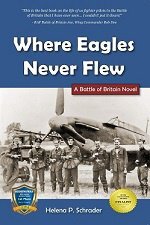
Despite the hour of the night, Colin decided to see if 606’s adjutant was about. Not entirely to his surprise, he found that Mickey was indeed still in his office.
Mickey looked up startled at the knock on his door, but he waved Colin in when he recognised him. “Isn’t it frightful?” he asked before Colin even got a word out. “The MO says he doesn’t stand much of a chance of ever walking again. Such an experienced man, too! He was one of Trenchard’s brats, you know, and he’s been with the squadron practically since it was formed. I can’t get over it: a fitter who’s been doing this work for years just steps backwards into thin air and falls straight onto the concrete.” Mickey shook his head again to emphasize his disbelief.
“Have you notified his family?”
“I’ve been trying, but I can’t seem to get through. Trunk lines appear to be completely over-loaded – that or Jerry got something during the day. All I get is the engaged tone before I even finish dialing!” The exasperation was understandable. The adjutant was tired, too – and all but drowning in the overflowing stacks of paperwork filling the office.
“Do you know about the fiancée?” Colin asked next.
“Yes, it’s here in the file. A certain Dorothy Morley – but I thought I ought to talk to his mother first. Maybe even have the mother break the news to the girlfriend, don’t you think?” The question was not rhetorical. Mickey sincerely wanted advice. He felt terrible and dreaded talking to either woman.
“Yes, if they live close enough, that is.” Colin paused, and then continued. “I also think it would be a good thing if LAC Tufnel was given compassionate leave to go up to Southampton and be with Sanders when they give him the news. They were pretty close, I understand, and his mother and fiancée aren’t likely to get down fast enough.”
Mickey was shaking his head. “Not a chance.”
“Why ever not?” Colin at once sat straighter, and for an instant, the future Earl was very evident; Colin was prepared to fight for this.
Mickey shook his head. “Don’t misunderstand me. I’d give him leave in an instant, but Jones hasn’t signed off on anyone’s leave in weeks. Look, here’s the file!” Mickey knew exactly where everything was despite the appearance of chaos presented to strangers. He had his hand on a manila folder in an instant. “These are all the leave requests submitted to Jones since we came south. The only ones he granted were for Hayworth, Dunsire and Ringwood at the end of June. Apparently, he’d promised it to them before leaving Scotland. But nothing since then. Believe me, I’ve tried to get him to sign off. I used to leave the file on top of his mail every day, but he ticked me off for that! Look! Here are, what,” Mickey counted, “seven requests from various erks – all duly signed off by the Chief – and here – oh, and here’s one from Davis. I suppose I can get rid of that.” He crumpled up the leave request from the dead pilot and tossed it into the wastepaper basket before turning the entire folder over to Colin.
Colin flipped through it and found Sanders’ request form, dated July 19. “But there haven’t been any orders to stop all leave, have there?” Colin asked.
“From the Ministry or Group, you mean? No, not at all. After all, things were comparatively quiet in June and early July. And when you think about it, throughout the last war we continued to have regular leave and rotations. Wars go on for years, and men can’t stay at peak performance continuously. They need rest.”
“They certainly do, and Sanders is going to need at least one familiar and friendly face around him when they give him the news. Surely, in this extreme situation, Jones could make an exception. We’re only talking about Tufnel going up to Southampton for a day or two.”
Mickey was unconsciously wiping imaginary sweat from his brow with his handkerchief. “I couldn’t agree with you more, but I’m not authorised to sign these things on my own. I’ve got to pin Jones down long enough to make him do it, and frankly….” He sighed, defeated.
“How long will it take to get a replacement in?” Colin asked next.
“Oh, that’s already organised. I put in for a fitter immediately after I heard the news, and Personnel said they’ll have someone here by tomorrow morning. In fact,” Mickey again put his hand on what he was looking for, “I’ve got a telegram stating a certain AC Fowley will be reporting to us in the morning. Coming straight down from the School of Technical Training.”
“Doesn’t that mean he’s straight out of training? No experience?” Colin asked, a little alarmed.
“Yes, but, well, they can’t very well steal from other squadrons, can they?”
Colin supposed that was right, but he didn’t like the sound of it. It would be very difficult for a young fitter to start his first job in the middle of the most intense air offensive in history.
“Mickey?”
“Yes?”
“Have you ever heard of Flight Sergeant Rowe punching or hitting the men?”
“Good heavens! That sort of thing isn’t allowed!” Mickey responded shocked.
“I know,” Colin conceded, but then continued, “yet I just witnessed it with my own eyes.”
“Good God! That’s horrible! We can’t afford to put Rowe up on charges in the middle of all this! You aren’t going to make a formal report, are you?”
Colin thought about that answer and considered the look on Mickey’s appalled face, and with a sigh shook his head. “No, I suppose not. Not now. Not this time…. But I don’t think it’s right.” He said good night to Mickey and retreated up to his own room, feeling very dissatisfied with himself. His last thought as he fell asleep was a simple prayer: God, help me.
Find out more about my novels at: http://helenapschrader.com
December 3, 2021
Antagonists: Part V of a Ten-Part Reflection on Creative Writing
Antagonists aren’t necessarily evil. They are simply characters that oppose — for whatever reason — the protagonists of the novel and/or get in the way of the protagonist achieving his/her goals.
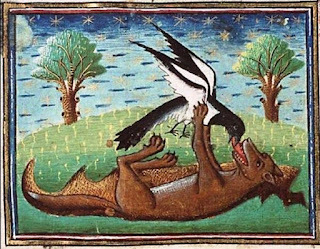
I think the most credible antagonists are ones that are as complex and nuanced as the protagonists of the novel. No good antagonist is one dimensional or cartoon-like. A good antagonist has good qualities as well as bad. Indeed, in some circumstances, an antagonist can be a very virtuous and attractive character in their own right yet one acting in a way that hurts or frustrates the novel's protagonist.
Generally, I draw on my own experience to create protagonists, which means depicting characters similar to people who I have encountered over the years. That doesn’t mean they were necessarily people I have personally clashed with, since my characters don’t all have the same ambitions, much less weaknesses and characteristics, that I have.
In my current work-in-progress, Lancaster Skipper, I have modeled the female antagonist after myself, knowing and recognizing that I have a personality that rubs many people the wrong way. Fiona is ambitious and determined to be taken seriously as a professional at the price of seeming heartless and opinionated. Obviously, I identify with Fiona and like her in many ways, yet she hurts my protagonist and makes her life more difficult. The reader is supposed to side with the female protagonist not Fiona.
In the Jerusalem Trilogy, Balian faces antagonists on two levels. First and most obviously, he faces the Sultan Saladin, who ultimately destroys his entire world. But Saladin is not a personal enemy. He is more a political or professional opponent than an antagonist gnawing at Balian’s soul. Thus, in the novels, Saladin is more a secondary character than an antagonist. Being a complex and controversial historical figure, I sought to portray him as accurately as possible.
Balian's more intimate enemy in the Jerusalem Trilogy, the real antagonist, is his older brother, the historical Baldwin d’Ibelin, Lord of Ramla. Yet even here, despite the fact that Ramla and Balian clash and are in many ways opposites, I seek to explain Ramla’s behavior and expose the emotions that are eating at him and making him act the way he does. Ultimately, I want the reader to understand and sympathize with Ramla too — just not as much as they sympathize with Balian.
Yet arguably the best example of an effective antagonist is John d'Ibelin, the "Old" Lord of Beirut in my Rebels of Outremer Series. The historical John d'Ibelin is an attractive hero -- a legal scholar and leader of men, a man who incurred the wrath of the Holy Roman Emperor for his staunch and unwavering defense of the rule-of-law. Contemporaries praised his wisdom and restraint; modern historians have compared him to St. Louis. Yet, in my series, he is the antagonist of his eldest son -- the impetuous, emotional and not always obedient Balian of Beirut. The interplay between these two very different characters gives the series much of its emotional power. The books would be much less colorful, attractive and realistic without the multifaceted and splendid antagonist.
For more about my Rebels of Outremer series featuring John d'Ibelin and his son Balian see: https://www.helenapschrader.com/rebel...
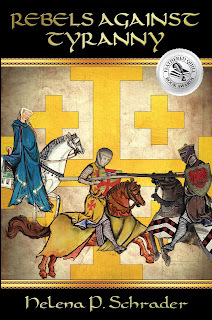
For more about the Jerusalem Trilogy starting with Balian d'Ibelin: Knight of Jerusalem visit: https://www.helenapschrader.com/balia...
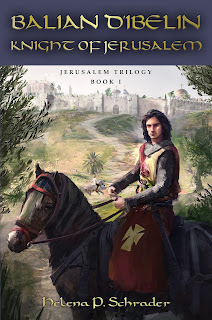
In addition to playing a role in Lancaster Skipper, Fiona is a character in Lack of Moral Fibre one of three novellas included in Grounded Eagles. To find out more about Grounded Eagles visit: https://www.helenapschrader.com/groun...
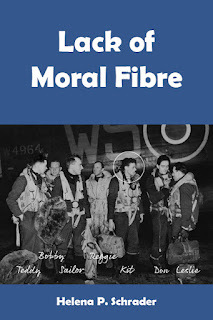
November 26, 2021
Women of the Past: Part IV of a Ten-Part Reflection on Creative Writing
Creating credible female characters in a historical setting where they do not enjoy the same freedoms and status as women of the present can be a challenge. Based on the historical fiction I have read, many authors "solve" the problem simply by making their heroines "unusual" or "ahead of their time." That is, making them modern women and explaining them away as "exceptional" because of some circumstance in their childhood. (Usually a mother who died in childbed, no brothers and an indulgent father.) While that approach is easy, it generally detracts from the authenticity of a novel. I've found that making a greater effort to make women conform to their own age is far more rewarding.
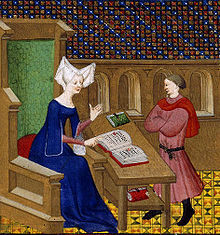
The key — as with most things in historical fiction — is understanding the period you are writing about. In depth research, particularly reading first-hand accounts by women of the period or biographies of women from the period, will usually enable a writer to start seeing the world through the eyes of women of the period. This is critical because to write credible characters, male or female, one must not depict them with thoughts, feelings and ambitions dictated by our modern understanding of what is right and wrong, but rather with their own values and expectations.
Research will aid the author in two ways:
First, much of what we think we know about a period of history may be hearsay, oversimplifications, propaganda or based on discredited sources. An excellent example of this is the common misperception that women in the Middle Ages were “mere chattels.” This is utter nonsense easily disproved by any serious (or even fairly superficial) research into the legal status, economic role and biographies of women of the period. Women could be sovereigns, lords, guild masters, and independent businesswomen. They took oaths of fealty, commanded men, inherited and controlled wealth including land, had professional training, were literate and numerate and engaged in professions such as medicine. In short, a novelist writing about women in the Middle Ages might not find them so different from modern women as she thinks before doing her research.
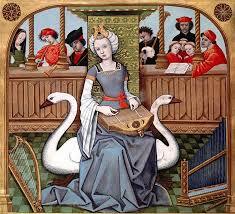
Second, however, in depth and particularly biographical research should enable a novelist to start to identify with and empathize with her female characters even in those areas and on those topics where their attitudes, values and expectations do differ more radically from our own. There is no question, for example, that women in WWII with very few exceptions were paid far less than their male counterparts and were restricted in their role. There was nothing like equality of opportunity and socially many customs were patronizing. Yet, when reading the memoirs of women in the Second World War the thing that jumped out at me was the enthusiasm and excitement they felt to be doing so much. While we look at their roles like the pessimist, seeing only what they did not have, they almost universally looked on their new empowerment like the optimist, seeing what they did have.
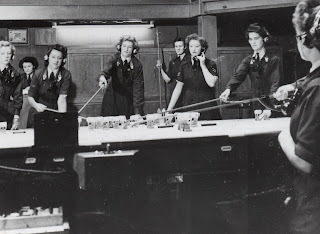
My medieval women do not have modern values and attitudes. They would not for a moment consider themselves “equal” to men nor would they want to disrupt the divine order by taking over male roles, yet they are strong, independent, self-confident and take an active role in their own fate. Find out more about my novels set in the Middle Ages at: https://www.helenapschrader.com/crusades.html
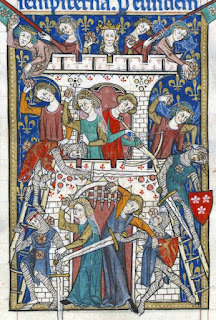 Likewise, the heroines of my WWII novels are far from “liberated” or powerful, but they don’t spend their time bemoaning their fate either, preferring to take the opportunities they have and contribute to the great national cause of which they saw themselves a part. Find out more about my WWII novels at: https://www.helenapschrader.com/wwii.html
Likewise, the heroines of my WWII novels are far from “liberated” or powerful, but they don’t spend their time bemoaning their fate either, preferring to take the opportunities they have and contribute to the great national cause of which they saw themselves a part. Find out more about my WWII novels at: https://www.helenapschrader.com/wwii.html 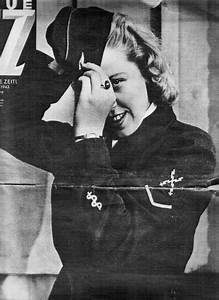
November 19, 2021
Of Protagonists and Heroes - Part III of a Ten-Part Reflection on Creative Writing
As a historical novelist, I am drawn to historical events in which humans — ordinary humans — have done something extraordinary. I suppose one might argue that that is the very definition of “heroes.” Yet, thinking of them in that way can detract from an empathetic and compelling portrayal.
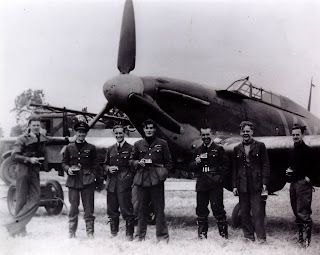
Let me give you an example. In the Battle of Britain a few hundred RAF pilots changed the course of history by halting Hitler’s aggression. As Winston Churchill famously said: “Never in the field of human conflict was so much owed by so many to so few.” But those young men were extraordinarily ordinary and not terribly heroic — except in their dogged determination to “do their job” despite the odds against them. I’ve read too many novels that, seeing these young men as “heroes,” transform them into superheroes. In other words, rather than showing them as immature young men with fears, insecurities, and underdeveloped flying and fighting skills, depict them all as hot-shot “aces.” On their very first combat sortie, they go out and shoot down four or five enemy aircraft. That’s not the way it was. It took time to learn how to dogfight, and most RAF pilots were shot down more than once before they were able to register their first victory — assuming they lived that long. Even top-scoring aces didn’t shoot down more than one or two enemy aircraft in a sortie. Most RAF pilots in the Battle of Britain were insecure when their arrived, all of them experienced fear and terror at times, and the bulk of them were also immature and often terribly irresponsible. They did silly things and they made lots of mistakes. I think that showing them as the immature, fallible, and yet frightened yet enthusiastic and irrepressible young men they were is both more historically accurate and makes better fiction. By making them less heroic as individuals, the reader finds it easier to fully identify and empathize with them.
On the other hand, some heroes are not simply “doing their job” but rather behave in a way that is extraordinary. They do something positive that is above and beyond the call of duty or reasonable expectations. Such heroes, I believe, are most effective in fiction if they are not depicted as something other-worldly, supernatural, or inherently different from the rest of us, but humanized instead.
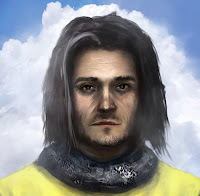
An example of this is my Balian d’Ibelin. Ibelin was without a doubt an extraordinary man. Although a landless younger son, he married a dowager queen, founded a powerful dynasty, and ultimately earned the respect of both Richard the Lionheart and Saladin. He defended Jerusalem against Saladin’s victorious army with no knights or trained troops, depending on women, boys and priests to man the walls. Yet his moment of greatest heroism, in my opinion, was when he offered himself as a hostage to save 15,000 paupers from slavery. For the reader to fully grasp just what that gesture meant and cost, however, they first have to care about Balian as a husband and a father. He has to be human first — and heroic second.
In both examples, the key is to view and to treat characters as fallible humans who do heroic things rather than as heroes, much less superheroes.
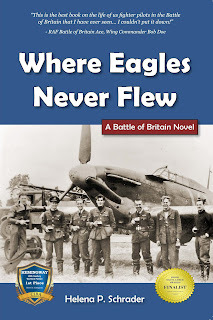
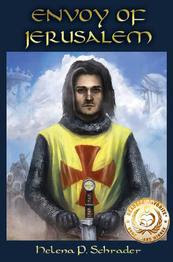 Buy Now! Buy Now!
Buy Now! Buy Now!
